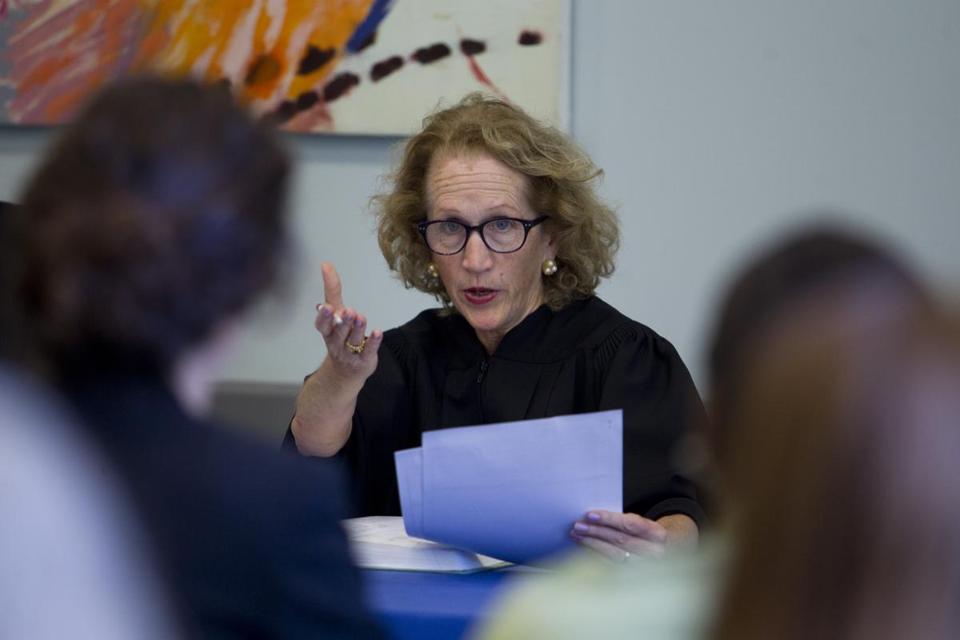JUDY WOODRUFF: Being a defendant in a courtroom can be an intimidating experience, especially for those who are trying to make ends meet. As Tina Martin at PBS station WGBH in Boston reports, one unique court in Boston tries to make it less stressful for one particularly vulnerable group of people.
TINA MARTIN: In more than two decades, as district court judge, the Honorable Kathleen Coffey has sent plenty of people to jail.
MAN: Hear ye, hear ye, all persons having business before the Honorable Kathleen Coffey.
TINA MARTIN: But her goal on this day is to keep them out. This is homeless court, held once a month at the Pine Street Inn, the largest organization for homeless services in New England. Prosecutors and social workers identify cases that can come before the court, cases involving crimes such as minor drug possession and destruction of property.
KATHLEEN COFFEY, Homeless Court Judge: When you're homeless, you're more likely to be involved in the criminal justice system, because of your interactions on the street with police.
TINA MARTIN: Many who end up here are battling addiction.
MATTHEW, Defendant: I'm coming up on two years off heroin this January, this coming January.
TINA MARTIN: This man asked that we call him by his first name only, Matthew. Even though he's clean now, an arrest for drug possession from years ago remained his record.
MATTHEW: It's kind of a roadblock to securing employment.
TINA MARTIN: Like all the defendants in this courtroom, Matthew was homeless or facing homelessness. Defendants have to show they have tried to get their lives back together, everything from drug rehab to job training.
KATHLEEN COFFEY: You don't have any convictions on this day.
TINA MARTIN: On this day, Matthew's case was dismissed.

KATHLEEN COFFEY: Keep up the good work. We do wish you the very best. Good luck. We are removing legal barriers that interfere with the placement of an individual into permanent housing.
TINA MARTIN: Judge Coffey has presided over Homeless Court here inside the Pine Street Inn since 2010 and says, since then, she has dismissed hundreds of low-level felonies and misdemeanors, including a drug possession charge on Barbara Parham's record.
BARBARA PARHAM, Former Defendant: I just knew that I had to get rid of I, and it was something that was going to hinder me job-wise, living-wise. I felt like it was a mistake, and how can I have this corrected without making it a big to-do or being embarrassed?
TINA MARTIN: This time last year, Parham was homeless and nervous about the idea of showing up in a courtroom.
BARBARA PARHAM: You're homeless, so most of the time, you're a little on the shabby side. When they told me about Homeless Court and where it was and how it was held, a very private setting, I felt safe and comfortable enough to go.
TINA MARTIN: The charge was dismissed, and Parham says she got her life back. She now has an apartment.
BARBARA PARHAM: My life like, to me anyway, it was a total disaster. I was jobless, homeless. And from then to now, with the help of Pine Street, I was able to put my life back on track, and here I am.
TINA MARTIN: In her own home, something Matthew hopes to have soon.
MATTHEW: Thank you.
KATHLEEN COFFEY: Good luck.
MATTHEW: Thank you very much.
TINA MARTIN: For the PBS NewsHour, I'm Tina Martin in Boston.
JUDY WOODRUFF: Really wonderful to see.












